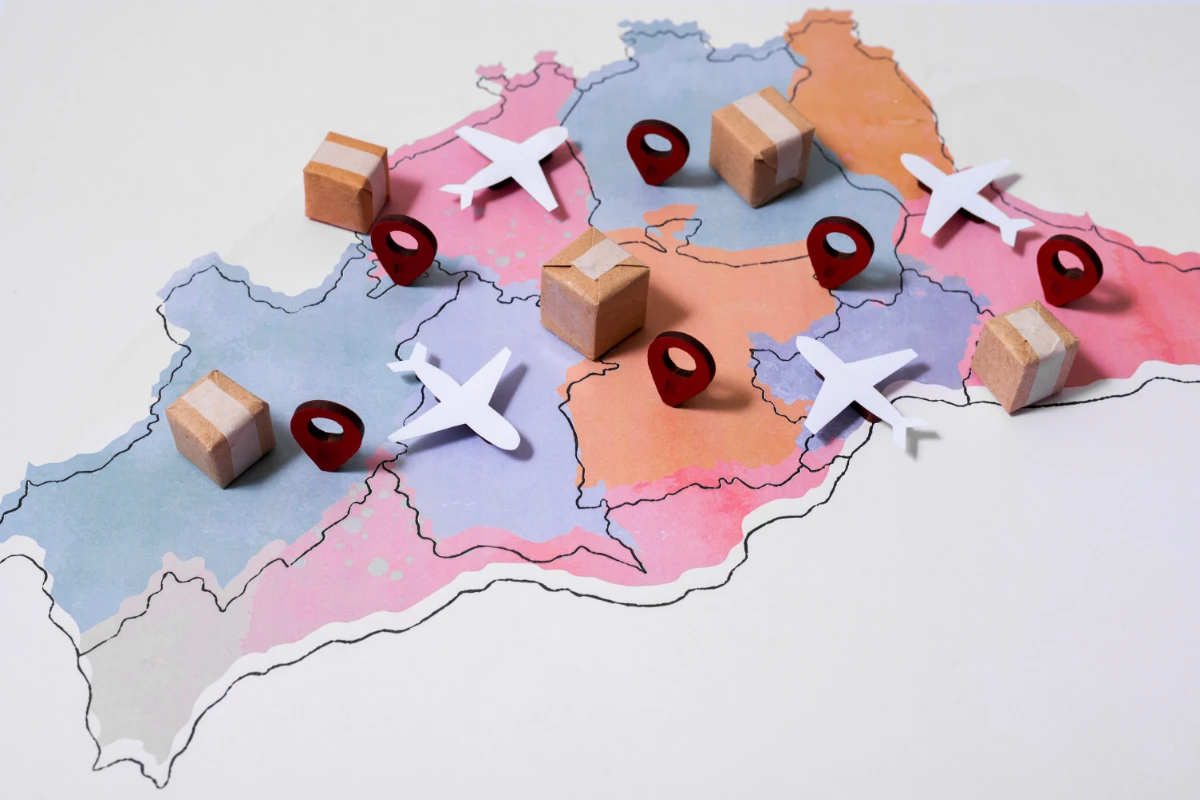
When it comes to the complex world of international trade, there are various professionals and entities that play pivotal roles in ensuring a smooth flow of goods across borders. Two of these key players are Registered Importer And a Customs Broker. If you’re in the business of importing or exporting goods, understanding the difference between these two entities can be crucial for your success. Here, we’ll break down the distinctions between Customs Brokers and Registered Importers And Customs Brokers, shedding light on their roles, responsibilities, and how they can assist in car shipping, car transport, and importing a car to the US and Canada.
What Is a Registered Importer?
A Registered Importer is an entity or individual that has been officially authorized by the National Highway Traffic Safety Administration (NHTSA) to import vehicles and equipment into the United States. Registered Importers play a crucial role in ensuring that imported vehicles comply with safety and emissions standards established by NHTSA. They are responsible for modifying, testing, and certifying vehicles to meet these standards.
The Vital Role of a Registered Importer
A Registered Importer (RI), often abbreviated as such, is an individual or entity that occupies a central position in the intricate web of international trade. Their role is instrumental in ensuring the seamless and lawful importation of various goods into a country. To put it succinctly, Registered Importers serve as the bridge between businesses with the desire to import products and the governmental agencies responsible for regulating and overseeing these imports.
The Responsibilities of a Registered Importer
1. Compliance with Regulations
One of the primary, if not the foremost, responsibilities of a Registered Importer is to meticulously ensure that all imported products unequivocally adhere to the extensive and often stringent regulations and standards mandated by the destination country. This involves a painstakingly detailed review of a plethora of documents, including but not limited to product specifications, safety certifications, and labeling requirements.
2. Documentation and Filing

Navigating the labyrinthine landscape of import regulations necessitates an astute proficiency in paperwork. Registered Importers shoulder the responsibility of completing and submitting the essential documentation to the relevant government authorities. This paperwork may encompass a myriad of forms and declarations, such as import permits and customs documentation, all indispensable for the lawful importation of goods.
3. Product Inspection and Testing
The vigilance of a Registered Importer extends beyond paperwork. They also undertake the onerous task of conducting meticulous inspections and rigorous testing of the imported products. This meticulous scrutiny ensures that the goods not only meet but often exceed the necessary standards, thereby safeguarding the well-being and interests of the end consumers.
4. Liaison with Government Agencies
In a regulatory landscape fraught with complexities, Registered Importers serve as the indispensable intermediaries between businesses and the myriad government agencies responsible for overseeing imports. This facet of their role involves seamless communication and collaboration with entities such as customs authorities, health and safety agencies, and trade commissions, among others. Such collaboration is indispensable for navigating the intricate maze of import regulations.
Qualifications for Becoming a Registered Importer
Becoming a Registered Importer is not a path for the faint-hearted. It demands a profound understanding of international trade regulations and a resolute commitment to upholding the highest standards of compliance. Here are the key qualifications and prerequisites that individuals or entities aspiring to become Registered Importers must diligently acquire and adhere to:
Industry Knowledge
A Registered Importer must possess an exhaustive understanding of the specific industry in which they intend to operate. This entails not only familiarity with the industry’s unique challenges but also an in-depth comprehension of the regulations and standards that govern the importation of specific types of products within that industry.
Regulatory Expertise
Staying ahead in the ever-evolving world of international trade regulations is imperative. Registered Importers are mandated to possess an intricate and up-to-date knowledge of the regulations and standards governing imports in their target market. Staying abreast of these evolving regulations is pivotal to ensuring compliance at all times.
Financial Responsibility
The role of a Registered Importer often entails financial responsibilities, including but not limited to the requirement of posting bonds or guarantees to cover potential liabilities. Demonstrating financial stability and responsibility is a critical prerequisite for individuals or entities seeking to establish themselves as Registered Importers.
Licensing and Certification
In many countries, the journey to becoming a Registered Importer involves obtaining the necessary licenses and certifications. These credentials serve as tangible evidence of the importer’s commitment to compliance and their expertise in the field.
Benefits of Working with a Registered Importer

Streamlined Import Process
One of the primary benefits of collaborating with a Registered Importer is the expedited and streamlined importation process. These seasoned professionals are well-versed in navigating the intricacies of international trade, resulting in substantial time and resource savings for businesses.
Compliance Assurance
Registered Importers provide an invaluable layer of assurance that imported products unequivocally meet all legal requirements and standards. This assurance significantly reduces the risk of costly delays or product recalls arising from non-compliance, thereby safeguarding both businesses and consumers.
Expert Guidance
The complex and ever-shifting landscape of import regulations necessitates expert guidance. Registered Importers bring their wealth of knowledge and experience to bear, offering businesses invaluable insights into compliance and best practices, thus ensuring a smooth and lawful importation process.
Risk Mitigation
Through their meticulous inspections and rigorous testing protocols, Registered Importers act as formidable bulwarks against the risk of importing substandard or unsafe products. By doing so, they play a pivotal role in safeguarding the interests and well-being of both businesses and consumers alike.
Registered Importers: Guardians of Compliance and Pillars of Efficient Commerce
In the intricate and interconnected world of global trade, the Registered Importer stands as a sentinel of compliance and a catalyst for efficient commerce. Their expertise, unwavering diligence, and steadfast commitment to upholding regulations are indispensable for businesses aiming to navigate the labyrinthine world of international trade seamlessly. By comprehending the myriad responsibilities, qualifications, and benefits associated with Registered Importers, businesses can make informed decisions that enhance their success in the international market.
What Is a Customs Broker?

A Customs Broker, on the other hand, is a licensed professional or firm that assists importers and exporters in complying with customs regulations and navigating the complexities of international trade. Customs Brokers are not limited to a specific industry and can handle a wide range of goods, not just vehicles. Let’s break down the key aspects of what a customs broker does:
1. Expertise in Customs Regulations
One of the fundamental roles of a customs broker is to possess an in-depth knowledge of customs regulations and procedures. These regulations can vary significantly from one country to another, and staying abreast of changes is crucial. Customs brokers are well-versed in the ever-evolving landscape of international trade laws, tariffs, and trade agreements.
2. Documentation Management
Navigating through the bureaucratic maze of customs paperwork can be daunting for any business engaged in international trade. Customs brokers are experts in managing and preparing the necessary documentation required for the clearance of goods. This includes bills of lading, commercial invoices, certificates of origin, and various permits and licenses.
3. Customs Tariff Classification
Assigning the correct tariff classification to imported goods is crucial for determining the applicable duties and taxes. Customs brokers are trained to accurately classify goods according to the Harmonized System (HS) code, ensuring compliance with the country’s specific tariff schedules.
4. Streamlining Import Processes
Efficiency is the key in international trade. Customs brokers play a pivotal role in expediting the import process by facilitating communication between importers and customs authorities. They ensure that all necessary documentation is complete and submitted promptly, reducing delays and potential fines.
5. Compliance and Risk Management

Compliance with customs regulations is not optional; it’s mandatory. Customs brokers assist businesses in adhering to these regulations, reducing the risk of penalties and legal issues. They also provide valuable guidance on strategies to minimize import costs and optimize supply chain efficiency.
6. Communication with Government Agencies
Customs brokers act as a liaison between importers and various government agencies responsible for trade regulation. They communicate with agencies such as the U.S. Customs and Border Protection (CBP) in the United States, ensuring that all requirements are met and any issues are promptly addressed.
Qualifications of a Customs Broker
To become a customs broker, one must meet specific qualifications and undergo rigorous training. These qualifications include:
Licensing
In the United States, customs brokers must obtain a license from the U.S. Customs and Border Protection (CBP). To qualify for this license, individuals must pass a comprehensive examination, demonstrating their knowledge of customs regulations and procedures.
Continuing Education
Customs brokers are required to stay updated with the latest changes in trade regulations. They are mandated to complete ongoing education and training to maintain their licenses and provide the best possible service to their clients.
Unlocking Global Markets: The Crucial Role of Customs Brokers in International Trade
A customs broker is a highly specialized professional with a deep understanding of customs regulations and international trade. They act as intermediaries, facilitating the smooth and efficient flow of goods across borders while ensuring compliance with all legal requirements. Their expertise is invaluable for businesses engaged in international trade, helping them expand their global reach and streamline their operations.
The Synergy between Registered Importers and Customs Brokers
Now that we’ve explored the roles of Registered Importer And a Customs Broker individually, it’s important to understand how these two entities can work together synergistically to facilitate the importation of vehicles.
Collaborative Efforts
In many cases, the importation of vehicles involves a combination of customs clearance and compliance modifications. Registered Importer And a Customs Broker can collaborate to ensure a seamless process. Customs Brokers handle the paperwork and customs regulations, while Registered Importers take care of the necessary vehicle modifications.
Compliance Assurance
Working together, Registered Importer And a Customs Broker ensure that vehicles not only clear customs smoothly but also meet all safety and emissions standards. This collaborative effort reduces the risk of regulatory issues and delays.
Streamlined Processes
By entrusting both aspects of the importation process to professionals who excel in their respective fields, businesses and individuals can enjoy streamlined processes, allowing them to focus on their core activities without the hassle of dealing with complex customs and compliance matters.
Registered Importer And a Customs Broker: Partners in Streamlining International Vehicle Imports
The difference between a Registered Importer and a Customs Broker lies in their areas of specialization and expertise. Customs Brokers excel in navigating the intricacies of customs regulations and documentation, ensuring the smooth passage of goods through borders. Registered Importers, on the other hand, focus on the importation of vehicles, making them compliant with safety and emissions standards.
Understanding these distinctions is essential for anyone involved in international trade, car shipping, or car transport. By enlisting the services of both Registered Importer And a Customs Broker, businesses and individuals can streamline their import processes, ensure compliance, and enjoy a hassle-free experience when importing vehicles into the United States and Canada.
With their combined expertise, Registered Importer And a Customs Broker form a formidable team that can navigate the complex world of international trade and vehicle importation. Whether you are an importer, exporter, or someone looking to bring a vehicle into compliance, partnering with these professionals can make all the difference. Contact Border123 today, your trusted partner in the world of Registered Importer And a Customs Broker To simplify your international vehicle imports.
Frequently Asked Questions
Can one individual be both a Registered Importer and a Customs Broker?
Yes, it is possible for an individual or a company to hold both licenses, allowing them to offer a comprehensive range of services in international trade.
Are Customs Brokers only relevant in the United States?
While the term Customs Broker specifically refers to the United States, similar roles and professionals exist in other countries, often under different names, such as Customs Agents or Import/Export Consultants.
What happens if a Registered Importer or a Customs Broker fails to comply with regulations?
Non-compliance can lead to penalties, fines, or even suspension of licenses. It is crucial for both RIs and Customs Brokers to maintain strict adherence to regulations.
How can I choose the right Registered Importer or Customs Broker for my needs?
When selecting a professional or firm, consider their experience, reputation, and expertise in your specific industry or type of goods.
Can I import goods without the assistance of a Registered Importer or Customs Broker?
While it is possible to handle imports personally, the complexities of international trade often make professional assistance highly beneficial for efficiency and compliance.


